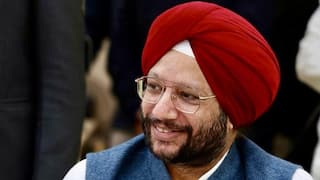Can't Make Smart Financial Decisions? Here’s Why Financial Literacy At School Level Is Crucial
Financial Literacy: From taking loans to long-term investment in various schemes, financial literacy helps individuals avoid making mistakes or repeating the same error time and again

Financial literacy is absolutely important. It is crucial for a wide range of applications, from day-to-day expenses to managing long-term budgeting and investing. If you want to make correct decisions at the right time, understanding this mechanism is indispensable. From taking loans to long-term investment in various schemes, financial literacy helps individuals avoid making mistakes or repeating the same error time and again. Hence, the subject will make you understand the basic economic intricacies.
Financial illiteracy may lead you to a number of pitfalls, such as accumulating unsustainable debts, either through poor spending calls or a lack of long-term preparation. This may lead to poor credit, bankruptcy, and other negative consequences. In this article our experts and analysts will talk about why a financial literacy programme should be introduced in school education and how it can be a game changer for all of us.
What Is Financial Literacy?
Financial literacy is, in other words, the ability to manage his/her personal finances.
Swapnil Kulkarni, founding member of Centricity, a digital wealth management company, tells ABP Live why financial literacy is vital. He says, “Financial literacy is crucial because it enables people with a basic understanding of financial concepts that may be used to inform their real-world financial decisions. They are better able to manage their money, make wise judgements, and maintain healthy spending and budgeting habits with this information, which can lead to financial stability and independence over time. Financial literacy encompasses retirement planning, debt management, and keeping track of personal expenditures enabling people to take control of their financial lives, make wise financial decisions, and achieve their financial objectives. It enables them to manage their income, expenses, and savings more effectively, resulting in better financial stability and security.”
Kulkarni has also shared some key methods to achieve financial literacy. “To gain knowledge on financial literacy, one might consult a financial professional or attend personal finance workshops. One can also begin by reading personal finance books or taking online classes.”
Why Financial Literacy Is Important In The Long Run
It is always better to possess financial literacy as it prepares individuals for better financial health and ensures well-being for the future. This programme allows them to evaluate different financial options, assess risks, and choose the best course of action and also includes decisions related to investments, loans, insurance, retirement planning, and major purchases. With financial literacy, individuals can develop strategies to avoid excessive debt and financial troubles. They can understand the implications of borrowing money, such as interest rates, repayment terms, and credit scores.
Er. Koneru Lakshman Havish, vice-president at KL Deemed to be University, Vijayawada, says that financial education can equip individuals with the knowledge and skills needed to make informed financial decisions, manage money effectively, and build long-term financial stability. “This is essential for everyone as it empowers them to make informed and responsible financial decisions. Personal finance ensures that individuals avoid overspending, over-saving or planning in misalignment with their needs, enabling them to create a realistic emergency fund, reach both short- and long-term goals, and live a fulfilling life by prioritising expenditures that truly matter to them,” he points out.
Need To Introduce Financial Literacy In School
Experts are unanimous in their opinion say that a financial literacy programme should be introduced in the school curriculum. Financial education should be a priority in all schools as it will help students become more educated consumers, productive employees, and better prepared for retirement. Personal finance education, especially in middle school, provides students with the knowledge and skills to effectively manage financial resources for a life of financial well-being. By introducing personal finance education at the school level, states can equip students to make wise financial decisions when it matters the most.
Sudeshna Bhattacharya, head of department, Economics, Seth Anandram Jaipuria School, Ghaziabad, says, “Financial literacy for kids does not only mean spending it wisely, but it also suggests the habit of saving or investing. Schools these days are inculcating many exciting programmes to teach money-management skills to students apart from academics. Students of primary classes should be encouraged to use a piggy bank in which they save their spare change, birthday money or cash gifts received from their relatives/ families. This concept helps them to maintain a discipline of saving.”
Bhattacharya opines that students of middle classes should be familiarised with currencies, exchange rate and banking system. “Students of higher classes must be introduced to income tax rules and calculation, functioning of financial institutions as well as financial markets. When children are aware of the concept, they can influence their families by sharing the knowledge on the importance of savings and take necessary steps for better financial management. Thus, spreading the concept of financial education and creating financial awareness among children can be a great leap forward towards better implementation of financial discipline at large,” she says.
Kulkarni thinks financial education could be a game changer, if introduced early in schools.
“Personal financial and money management knowledge and abilities are essential for everyone, regardless of future job, income level, or background. Students can develop important skills leading them to more informed financial decisions throughout their lives, resulting in financial stability and independence,” he adds.
Ramkrishna Raut, head of data science and technology at Happy, a neo MSME platform, suggests how financial literacy can be achieved through multiple ways such as through formal instruction, workshops, online resources, and consulting financial consultants. “The danger of debt, financial instability, and poor financial decisions is decreased when financial literacy instruction is provided in schools and universities because it assures that people are better equipped to handle real-world financial issues. It also fosters a culture of fiscal responsibility and economic progress by equipping future generations with the knowledge to manage their money wisely,” Raut states.
RBI Initiatives
The Reserve Bank of India (RBI) has been organising programmes on financial literacy week every year since 2016. The event aimed at creating awareness among people about savings, planning, and budgeting, and prudent use of digital financial services. As part of the drive, the central bank conducts a mass media campaign to disseminate financial awareness messages. It has also roped in banks to educate their customers about financial literacy. The banking regulator noted that India’s financial inclusion is “poised to grow exponentially, with digital-savvy millennials joining the workforce, social media blurring the urban-rural divide, and technology shaping policy interventions”.
With inputs from Archit Gupta
Education Loan Information:
Calculate Education Loan EMI
Related Video
Union Budget 2025: Arvind Kejriwal lists the shortcomings of the Modi government's budget | ABP News | AAP
Top Headlines





































